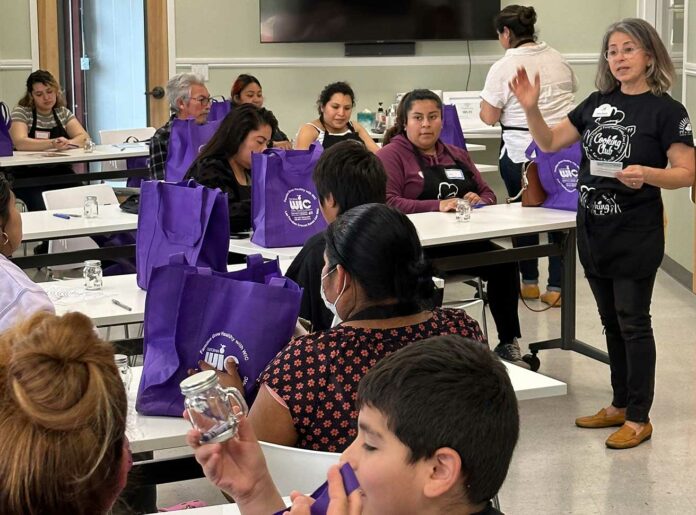
The causes of food insecurity are complex, but research suggests that health, housing and employment are key factors.
Feeding America—the country’s largest hunger relief organization—reports that annual healthcare costs for food-insecure adults are on average $1,834 higher than food-secure adults. Food insecurity, as defined by the United States Department of Agriculture, is a lack of consistent access to enough food for people to live a healthy life.
In May, Second Harvest Food Bank sponsored the annual CalFresh Forum, gathering leaders and community members who work to increase food security. According to Second Harvest CEO Erica Padilla-Chavez, Santa Cruz County’s food-insecure adults spend an additional $50 million on healthcare.
By teaming with local organizations, the Food Bank strives to ease this burden. For example, the organization is partnering with WIC (Special Supplemental Nutrition Program for Women, Infants, and Children) and soon with local healthcare agencies on preventative healthcare initiatives.
The USDA reported that there is a connection between food insecurity and housing costs. In a national study it found that low-income households with children spend more than 50% of their income on housing. This impacts housing stability and increases the risk of food insecurity, according to the study.
One of the Food Bank’s priorities is working with organizations such as Community Action Board, which focuses on addressing housing challenges in Santa Cruz County, an area with the highest rent in the United States.
“Through our Second Harvest partnership, our clients don’t have to choose between a meal and their housing,” Coordinator Sandra Varela said.
Watsonville Works, a program of the Community Action Board, provides up to two months of rent assistance to newly housed clients that worked with case managers.
“We also refer clients to CalFresh, knowing Second Harvest will advocate for them,” Varela said.
Padilla-Chavez also said her organization seeks to provide employment assistance to people who are unemployed or underemployed.
“We are the Food Bank,” Padilla-Chavez said. “With the collective power and tireless energy of our staff, our partner agencies, and our community at large, we make a difference for our community.”











